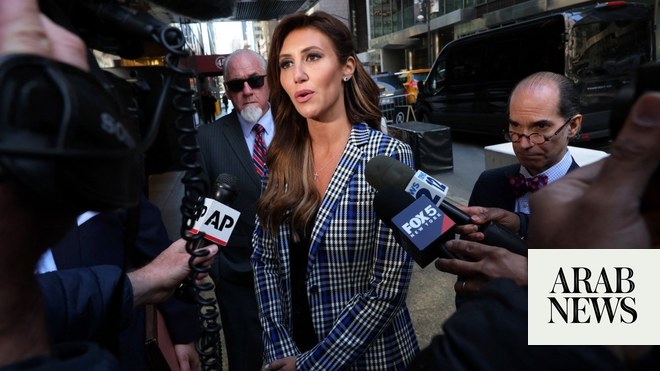
NEW YORK (Reuters Breakingviews) - Eight years ago, New York Magazine proclaimed Benjamin Harrison the most forgotten of America’s commanders in chief. Donald Trump’s turbulent stint as a fellow one-term president may, ironically, revive interest in his 19th century Republican forebear’s four years in the White House.
In the two weeks since the U.S. election, Trump’s unwillingness to concede gracefully suggests he has his eye not on the legacy of Harrison but another forerunner, Grover Cleveland. The Democrat and former governor of New York took office in 1885 and held two non-consecutive terms. The Trump camp, while unsuccessfully waging legal challenges to former Vice President Joe Biden’s victory, continues to float the possibility that the 74-year-old former reality-television celebrity might run again for the chief executive’s role in 2024.
But in style, and substance, Trump looks to be more like Harrison, the man who Cleveland bookended. Harrison, the only president whose grandfather also served in the role – albeit for a scant 31 days before disease took his life – sowed the seeds of his trouncing by Cleveland with a series of economic, trade and fiscal policies that don’t look far off from some of those Trump backed during the past four years.
Indeed, there is an uncanny relevance to contemporary American politics to be gleaned from Harrison’s brief, somewhat unhappy, and undeservedly forgotten reign. While Trump may style himself as the next Cleveland, Biden will want to avoid the mistakes that relegated Harrison to the dumpster of overlooked American leaders.
The most obvious similarity regards the views of Trump and Harrison on international commerce. Both professed skepticism over global trade’s benefits to U.S. consumers. And both used tariffs to try to support American manufacturers. That was perhaps the single biggest reason for Harrison’s political defeat in 1892. The verdict is still out on whether the taxes Trump has imposed on imports, particularly from China, will prove to be similarly damaging.
Harrison’s big mistake, at least with 130 years of hindsight, was his support for the McKinley Tariff, which Congress passed in 1890. The protectionist legislation, so named for its champion in the House, Representative William McKinley of Ohio – who would eventually defeat tariff-skeptic Cleveland after his second term – raised duties on imports to nearly 50%.
Rather than helping make American industry more competitive, the McKinley Tariff helped monopolists, largely East Coast businessmen like the textile bosses who formed what is now Warren Buffett’s Berkshire Hathaway, and hurt the poor and the working class hardest. Like today’s lower-income laborers, a larger percentage of their paychecks went toward purchasing goods manufactured elsewhere.
Not only were ordinary consumers paying more for goods like English woolens and Cornish tin plates, but the workers who had been promised greater prosperity from McKinley’s bill weren’t better off. “The labor movement was coming to see that it had not benefitted from the high tariff as the Republicans had said it would,” writes John Pafford in the “The Forgotten Conservative,” his 2013 biography of Cleveland. “This also hurt Harrison,” he notes, as labor strife, including Pennsylvania’s bloody Homestead steel strike, broke out during his final year in office.
At the same time as Harrison was trying to raise more revenue for the country through tariffs – something Cleveland called “indefensible extortion” in his third State of the Union speech – he went on an unequalled spending spree. According to an official White House history, Congress appropriated $1 billion, a record in peacetime. When critics attacked “the billion-dollar Congress,” Speaker Thomas Reed replied: “This is a billion-dollar country.”
That profligacy provides another analog with the Trump years. Since the current president took office promising to eliminate the national debt in January 2017, America’s borrowings have risen by more than a third to around $27 trillion. At least Harrison made substantial investments with the money, including the creation of a formidable U.S. Navy, which would benefit the country for years after his term.
There are other similarities. Like the Trump White House, Harrison’s was rife with infighting. And his refusal to play the game of awarding plum positions to political allies, while potentially noble, left him with influential Republicans outside the government mounting a “dump-Harrison movement.”
Even McKinley, whose trade bill he signed into law, gave him the cold shoulder. By the time 1892 rolled around and Cleveland was gunning for a comeback, Harrison had become “a reluctant candidate, disliking his job and hating Congress,” writes former White House adviser Karl Rove in 2015’s “The Triumph of William McKinley.”
In the end, Harrison was beleaguered by bad economic policies, internecine warfare and a perception that he was squandering America’s treasure. Moreover, his wife was battling tuberculosis. When she died just two weeks before the November election, Harrison gave up campaigning altogether. Cleveland won by the biggest popular vote margin in 20 years, and the Democrats took both houses of Congress for the first time since before the Civil War.
It was an ignominious ending for Harrison, who four years earlier had been inaugurated in a blustery rainstorm. At that time Cleveland kindly held an umbrella over Harrison’s head as he recited the oath of office. Which president Trump most closely follows is still to be seen – but if it’s raining when inauguration day arrives on Jan. 20, don’t expect the outgoing 45th to keep his successor dry.












